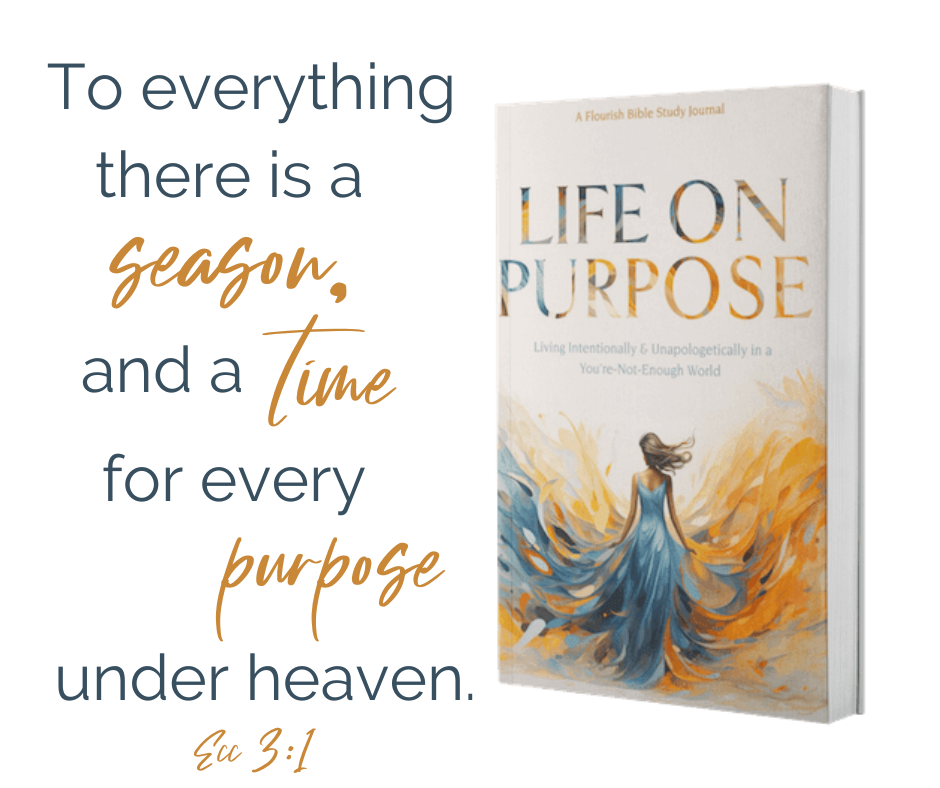My mom asked me an important question, “Mindy, do you believe that your daddy and I love you unconditionally?”
I replied, “Oh no, not at all. (I was a teenager at the time – insert eyes rolling here.) Do you really expect me to believe that you love me just as much when I rebel as when I obey? No way. You cannot convince me that I am as loveable when I’m angry, selfish, or disagreeable as when I’m an angel.”
She looked concerned and pressed further, “Do you believe that God loves you unconditionally?”
I pondered for a moment and replied honestly, “I know it here (pointing to my head). I know that Jesus loves me because the Bible tells me so, but I do not know it here (pointing to my heart).”
My mother breathed a seemingly innocent prayer that day: “God, move it from her head to her heart.” Little did we know that simple request would unlock a chain of events that would significantly alter my life.
Does God love me?
God’s love is alluring yet mysterious. Everything in this fallen world is designed to make us doubt His goodness and question His intentions. Instead of trusting in Him, we grasp for little gods, temporary comforts, relationships, and reassurances that we can hold in our hands, hear with our ears, or taste with our mouths.
When life’s journey takes an unexpected turn, especially one that involves trouble or suffering, we cry out in desperation, accusing God of abandoning us. And if we are not careful, we are tempted to think that He does not care, He does not see, He does not hear.
Naomi Changes Her Name
We find that Naomi’s life has taken an unexpected turn for the worse in Ruth chapter one. She finds herself in a foreign land, widowed by the death of her husband and then abandoned completely by the demise of her two sons. Her life is ruined. In those times, a woman without a husband and sons has nothing. Naomi’s future is dark indeed; we can understand why she might doubt God’s love for her. Indeed we see that she blames God for her misfortune. When she returns bereft to her homeland in Judah, she reveals her despair by changing her name:
“ ‘Don’t call me Naomi,’ she told them. ‘Call me Mara, because the Almighty has made my life very bitter. I went away full, but the Lord has brought me back empty. Why call me Naomi? The Lord has afflicted me; the Almighty has brought misfortune upon me.’ ”(Ruth 1:20-21, NIV)
Naomi accuses the Almighty for her misfortune. Her mind unsupported by a believing heart is unable to remain steadfast when storms rage. Fortunately, Mara acknowledges her despair and hopelessness. Many of us do not. We slip away from the strong arms of our Father God and separate ourselves from His love. Mara calls it like it is, but when we fail to name our grief, our passion for God cools. When we doubt His unchanging love, we slip slowly into apathy and drift away from His protective embrace.
Is His Love Unchanging?
What if Naomi had not believed? Might she have lived out her days as Mara? Our Declaration Verse proposes statements about God’s character that may be difficult to believe when we are caught up in apathy, bitterness, or doubt. Let me provide an example of how we in our skepticism might be tempted to read this verse:
But you, O Lord, are a God of compassion (Is He really?) and mercy (Then why is there so much suffering?), slow to get angry (You’re kidding, right?) filled with unfailing love (Tough love, maybe) and faithfulness (Then why do I feel so neglected?). (Psalm 86:15, NIV, with added commentary interspersed)
The lament and longing of Psalm 86 sounds similar to the voice of Mara. David expresses his human frailty, and yet he confidently declares the unshakable nature of his God: “You, Lord, are forgiving and good, abounding in love to all who call to you.” (verse 5) Love is the foundation of all, the greatest commandment (Matthew 22:40). It is unchanging. His Love is. Everything.
God Restores Naomi
Although Naomi tries on the name Mara, it does not hold. The Lord whispers her true name. He stops at nothing to draw each of His daughters close to His heart. God comes near to the brokenhearted, meets us in our anguish, and reveals that His love is indeed an unchanging and unmovable foundation for our lives. When we respond to Him, love moves from our head to our heart, and we are positioned to believe. His love ignites a steadfast hope in our hearts that does not falter, even in the midst of suffering.
Mara believes and discovers that the Almighty is indeed good. He is a Friend, not an enemy. His intentions toward Naomi are kind. Never does He falter in His promise to draw her forward into a future full of hope and promise. Unfortunately, when we possess only a superficial knowledge of God’s love, we struggle to draw our gaze away from the immediate circumstances to see the bigger picture of Jehovah Jireh, our provider, who works out everything for our benefit.
Mara overcomes her disappointment in a seemingly faithless God, wooed by His love. She lets go of bitterness and returns to her true identity as Naomi or “pleasantness.” She realizes that His love has sustained her until she finally perceives what He has intended from the beginning: to graft her daughter-in-law into an esteemed family line. Bitterness turns to honey on her tongue. Could she have imagined such an honor as a childless widow starving in a foreign land? Never. That is our God.
Our prayer for you during this study is that God draws you closer into His embrace. As you step into your love story, and fully inhabit your journey of restoration, may you respond to Jehovah God by receiving His deep affection for you. He desires to be the compassionate, merciful, kind, unfailing and faithful love of your life. Listen as the King whispers your name, “Come away with Me, My love.”

